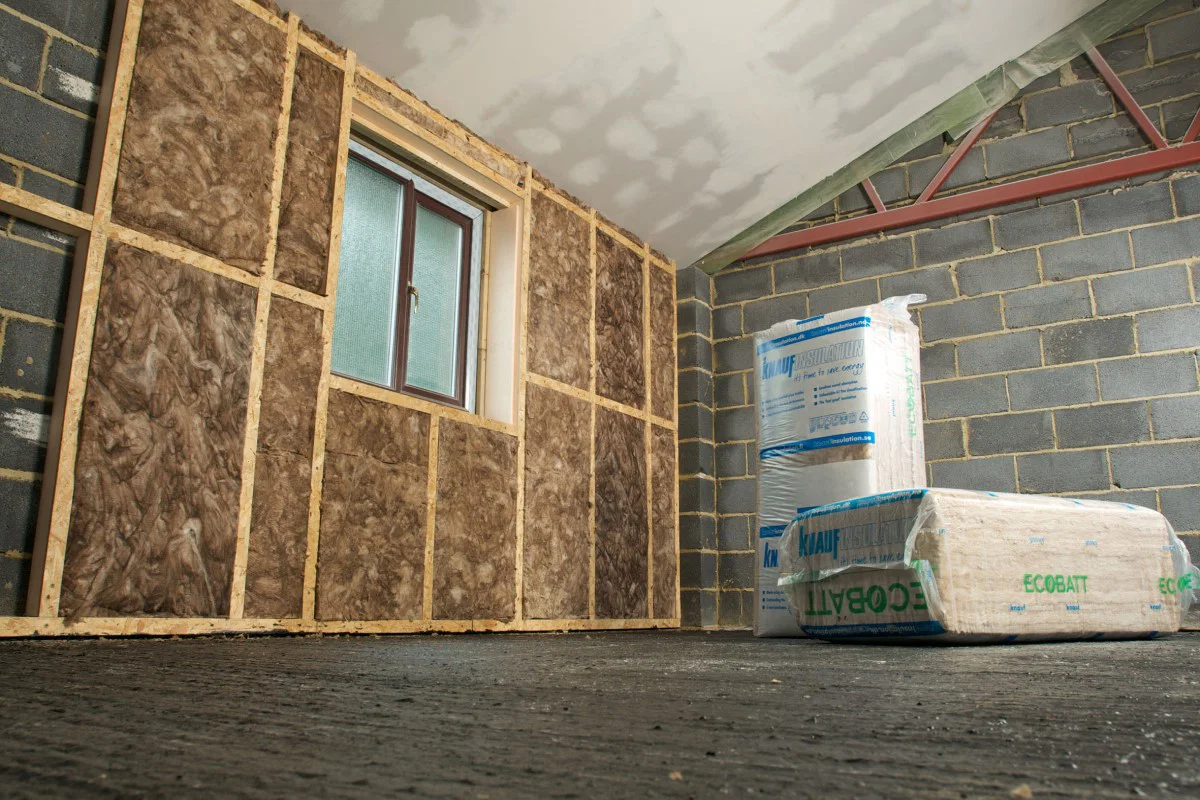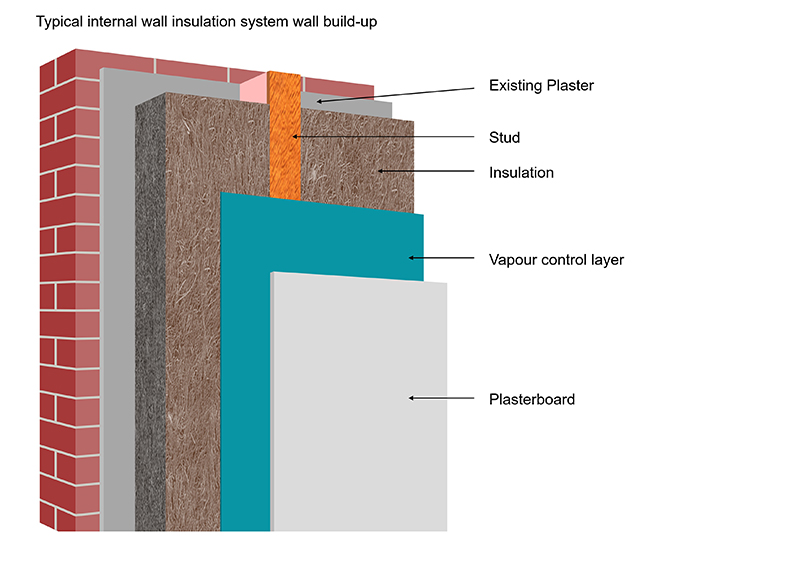
Internal Wall Insulation (IWI)
a smart way to improve the energy efficiency of homes with solid walls, where cavity wall insulation isn’t an option. By adding insulated boards or stud walls with insulation to the inside of your property, you can significantly reduce heat loss while keeping your home warm and comfortable.
- Reduce heat loss through solid walls and cut energy bills
- Improve comfort by eliminating draughts and cold spots
- Long-lasting insulation with minimal maintenance
- Helps achieve a better Energy Performance Certificate (EPC) rating
- Suitable for properties where external insulation isn’t possible (e.g. conservation areas)

External vs Internal Wall Insulation
Both External Wall Insulation (EWI) and Internal Wall Insulation (IWI) are effective ways to insulate solid walls and improve your home’s energy efficiency. The best choice depends on your property type, budget, and personal preferences.
How it works: Insulation boards or stud walls fitted inside your property
Best for: Homes in conservation areas, listed buildings, or where external changes aren’t possible
Installation impact: Work carried out indoors, may require redecoration and moving fixtures

If you have any questions
You could qualify for an ECO4 grant if:
Your property has an Energy Performance Certificate (EPC) rating of D, E, F, or G
Someone in the household is receiving income-related benefits such as:
- Child Tax Credit (CTC)
Child Tax Credit is designed to assist families with children. ECO4 eligibility requires that the household income aligns with the thresholds set by the scheme. - Income-Based Jobseeker’s Allowance (JSA)
JSA is a benefit for individuals actively seeking employment. Those receiving the income-based variant of JSA automatically qualify for ECO4. - Income-Related Employment and Support Allowance (ESA)
ESA is provided to individuals unable to work due to illness or disability. ECO4 includes households with income-related ESA recipients. - Pension Credit (Guarantee Credit)
Pension Credit is a key benefit for pensioners. Those who receive the Guarantee Credit element qualify for ECO4, helping older adults in financial need improve their homes. - Pension Credit (Savings Credit)
Pensioners receiving Savings Credit are also eligible for ECO4 grants, ensuring support extends to a wide range of older residents. - Universal Credit (UC)
Universal Credit is a benefit for those on low income or out of work. ECO4 includes UC recipients, provided their income does not exceed specific thresholds. - Working Tax Credit (WTC)
Designed to support those in low-income employment, Working Tax Credit recipients qualify for ECO4 funding. - Income Support
Aimed at individuals with little or no income, Income Support qualifies households for ECO4 assistance. - Housing Benefit
Recipients of Housing Benefit, which supports housing costs for low-income individuals, are eligible under ECO4. - Child Benefit (Subject to Income Thresholds)
Child Benefit eligibility under ECO4 depends on household income and the number of children. See the table below for detailed thresholds.
Income Thresholds for Child Benefit Recipients
For households claiming Child Benefit, eligibility for ECO4 depends on meeting specific income thresholds. These thresholds vary depending on the number of children and whether the claimant is single or part of a couple.
| Household Type | Single Claimant Annual Income | Couple Annual Income |
| 1 Child | £19,900 | £27,500 |
| 2 Children | £24,800 | £32,300 |
| 3 Children | £29,600 | £37,200 |
| 4+ Children | £34,500 | £42,000 |
Households exceeding these income thresholds are not eligible for ECO4 based on Child Benefit alone, although they may qualify through other benefits.
If you’re unsure whether you qualify, Home Efficient can check your eligibility and guide you through the application process.


